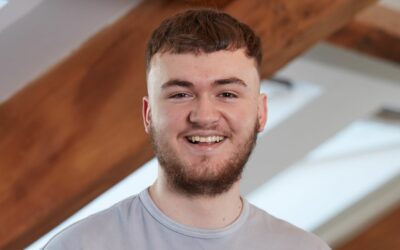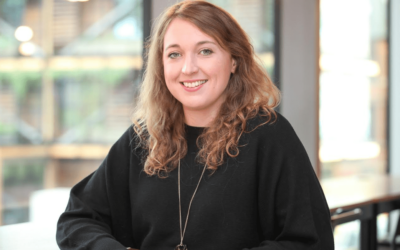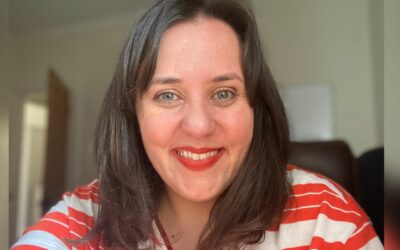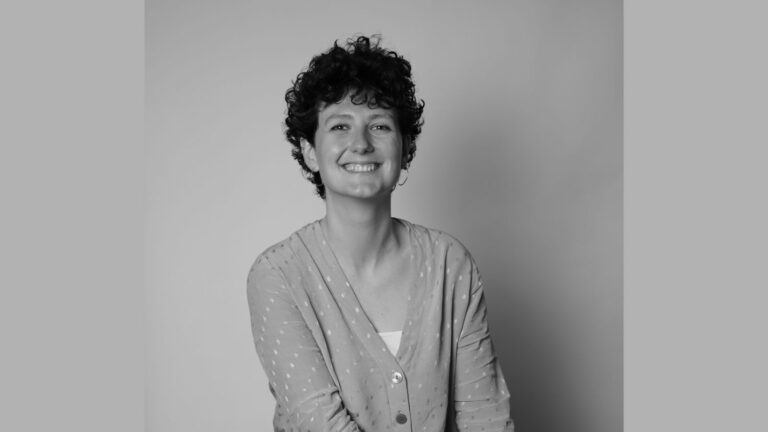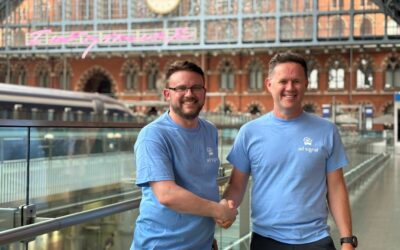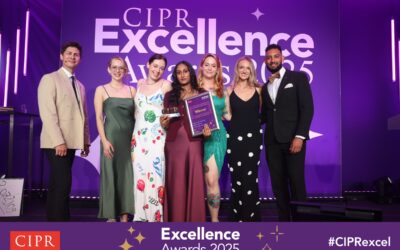Anna Staufenberg is a producer on some of Crowd Network’s biggest podcasts.
Since launching in 2020, Crowd Network is a rapidly growing Manchester-based audio-on-demand network, home to popular podcasts including The Joe Marler Show, Murder in House Two and We Didn’t Start The Fire.
Her work on the podcast We Didn’t Start The Fire saw the podcast shortlisted for several industry awards. Anna has also worked on the podcast dot com, which explores some of the biggest issues and themes facing the internet.
She shared her career journey, tips and advice for those looking to venture into the fascinating world of podcasting.
How did you first get into your industry?
I remember sitting in my kitchen at university in Edinburgh, two months before graduation, and I looked out the window and realised I didn’t have a clue what I wanted to do with my life, because who wants to hire a Philosophy and German grad? I’d been quite involved with student radio in my last year at uni and had a (low-quality) music and interview show which I loved doing, and that seemed like a cool bet. I knew that some BBC shows had moved to Salford so I packed my bags, moved to Manchester, and started meeting a LOT of industry people for coffee.
What do you love about your job?
Everything! Well, most of it. It’s so varied. I get to chat with people I’ve never met before and gain their trust for stories I’m working on. I’m learning about Qanon in Canada one day and a Russian mafia scam the next.
I also work with such nice people, who are great and inspiring and think so creatively. I like working on projects that develop and change over time, instead of working to the same rigid deadlines each week. The freedom is also great; a few days a week I’m in the office, the others at home, sometimes I’m driving to Wales to do an interview or maybe even flying to Sweden to meet a source. I feel like I’ve struck gold!
Who – or what – has inspired you in your career?
This will embarrass him, but my line manager at Crowd, Steve Jones.
What are the biggest challenges about your job?
We’re at an interesting stage right now where, because Crowd Network is growing quickly and so is the podcast industry generally, the stories team that I’m in (we make Crowd’s documentaries and investigations) is always having to think of ways to do things differently. The world will get bored of scam and con artist documentaries quite soon, so we’re always trying to think what audiences don’t even know yet is the next big thing. It can be a challenge to keep that creative momentum going week-by-week.
What skills have been the most crucial to you succeeding in your career so far?
Being nice? I don’t know, probably being able to speak to people. And not giving up even though it took me a few years to get my first proper job in the industry. I just stuck with it because I knew audio docs were what I wanted to do.
What was your first salary and what could someone getting into the industry expect to earn nowadays?
My first actual job in the audio world was working freelance as the weekend news reporter at Bauer’s North West stations – Hits Radio, Rock FM and Radio City in Liverpool. I think I was paid about £160 a day for 2-3 days’ work a week? Something I’d say about pay is negotiate! Don’t think you’re cheeky for knowing your worth.
What education or training would be most useful for someone looking to follow your career path?
It’s definitely not accessible because it costs a lot of money (around £3,500), but I eventually decided to spend my savings on doing my NCTJ journalism training. That teaches you everything you need to get your first journalism job like shorthand, media law, public affairs and court reporting. The shorthand and court reporting I don’t really need in my job now, but public affairs and media law are important.
The NCTJ qualification meant I was taken seriously when I met editors asking for freelance work and got me in with Bauer which I think eventually helped me get my job at Crowd. If you’re wanting to get into broadcast media instead of print, check out the NCTJ equivalent, the BJTC. As I say, not very accessible but if you have some savings and want some rigorous training that’s a good place to look. They also offer bursaries and are always wanting to get a more diverse array of people into journalism through schemes like the Journalism Diversity Fund (JDF).
What advice would you have for someone looking to follow your path?
Find someone who has a job you think is cool and meet them for coffee, ask lots of questions, be nice, offer to help out, make yourself useful and don’t think there’s such a thing as a ‘dream job’.

